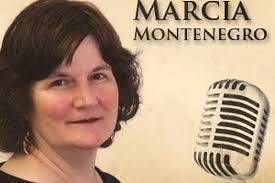
Some time ago I published an Ask RC podcast titled, “What’s wrong with the enneagram?” One of my (many) concerns is that as with so many other so called assessment tests, we always face the temptation to excuse our sin on the basis of our personality type. The bossy person gives free reign (pun intended) to his bossiness by claiming to be gifted at administration. The more I’ve been thinking about this, however, the more I see it everywhere.
One of the reasons, for instance, that the Christian’s strategy of “Hate the sin, love the sinner” hasn’t been able to broker peace with the sexually confused is because the sexually confused wind their identities up in their confusion. Thus we have “Side B” Christians, celibate sexually confused people who are willing to give up gay sex, but not gay identity. When we hate the sin of the LGBTQ, they inevitably conclude we hate them because they think they are their sin. Even the “alcoholic,’ if he maintains a friendship with Bill W., even if he hasn’t had a drink in decades, holds on to his self-identity as an alcoholic.
We need not, however, find ourselves in these extreme circumstances to make the same mistake. I make it too. That is, even someone like me who rejects enneagram and other personality profiles, who rejects sexual confusion and who isn’t a friend of Bill W. still falls for this temptation. I needed no personality test to know this- I am introverted. I tend to find interaction with other humans less stimulating, more tiring. I’m far more likely to become a hermit than a salesman. Sometimes, witnessing my lack of enthusiasm, people reach the conclusion that I am rude. I am discovering that they are right.
The Bible calls me to love my brothers, to be actively involved in the lives of others. It does not call me to not be tired. That I am inclined toward the sin of rudeness, that I am selfish enough that I think being tired is sufficient reason to hide away isn’t a sign that I have a particular personality but that I struggle against a particular sin. My calling isn’t to grant a title to that temptation and then excuse my failure to overcome it by claiming, “That’s just the way I am.” “That’s just the way I am” doesn’t remove our guilt. It merely describes it.
When I name my weakness I make it my pet, something safe and manageable. When I give up that name, I can begin the good work of putting my weakness to death, nailing it to the cross. When I take the blame rather than shift it I can take my medicine and start to get better. Introvert can join the long list of things I used to be, that are no longer a part of my identity. I am not a slave to my habits, my temptations, my psychology, my past. I have been set free by Jesus. Whom He sets free is free indeed.









